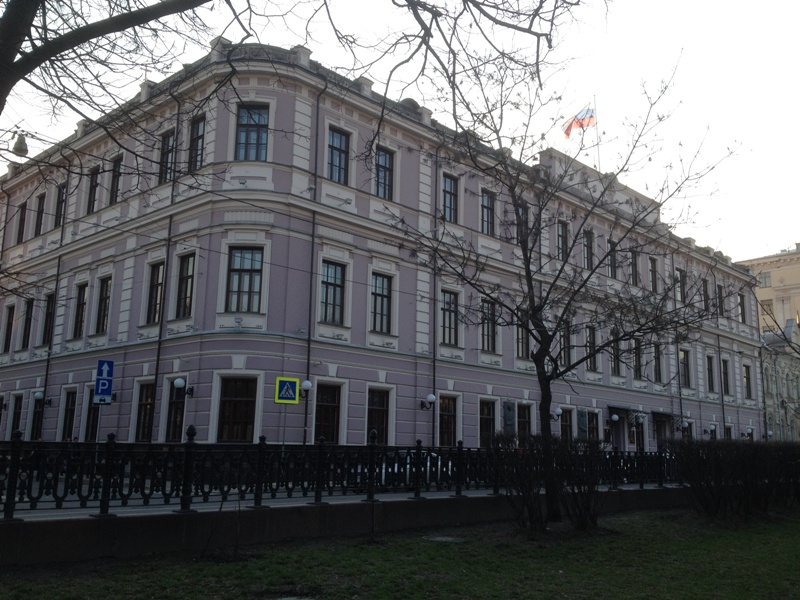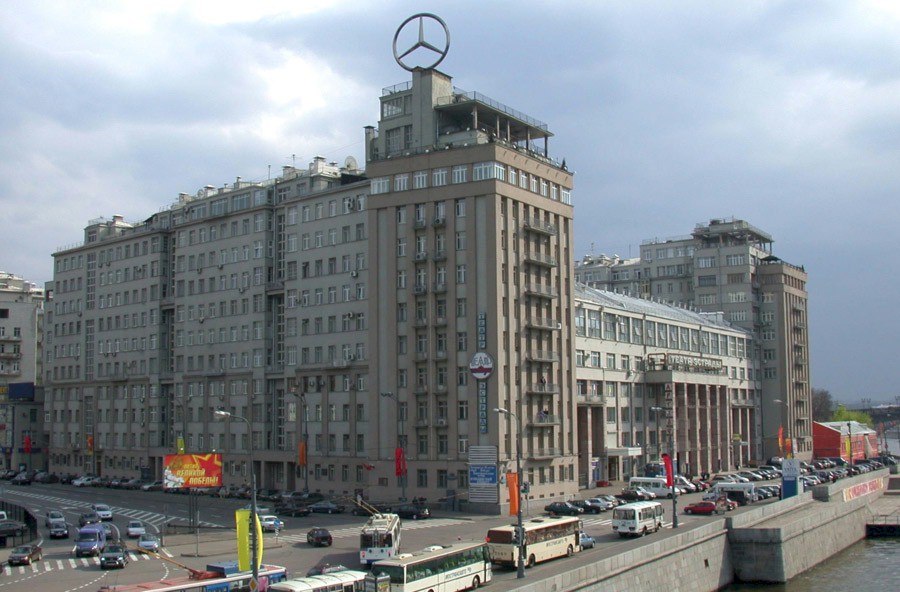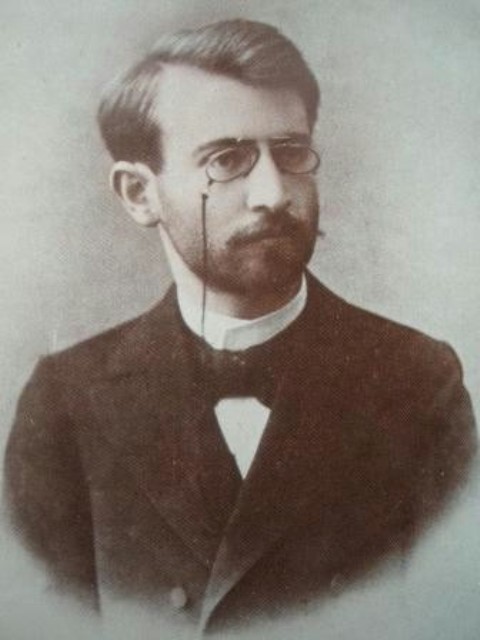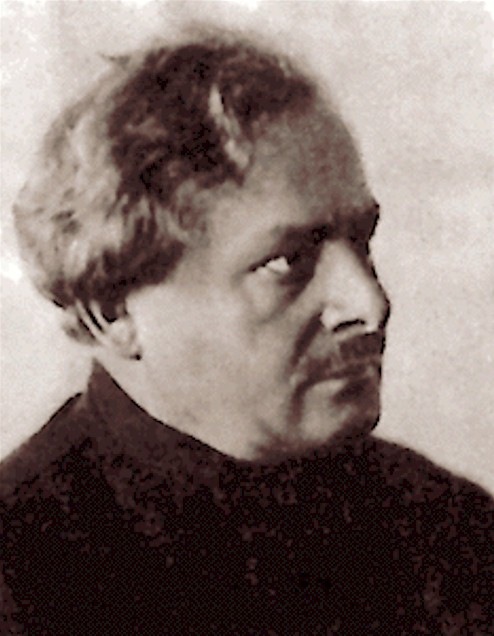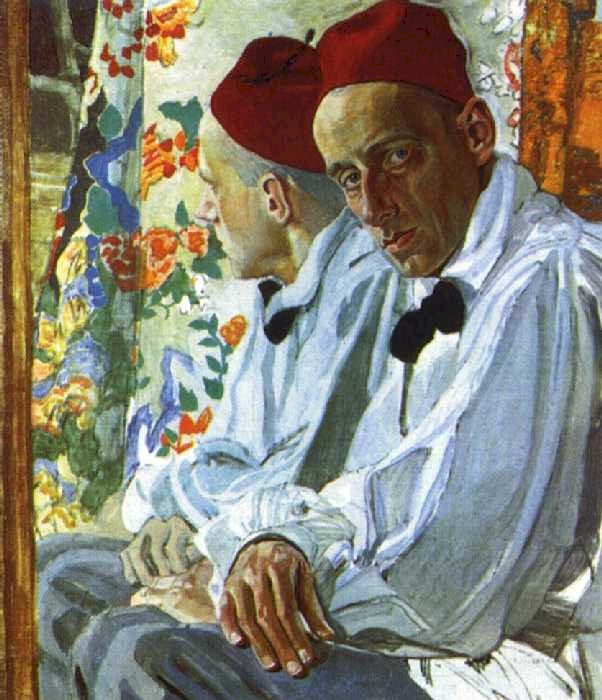Аркадий Аполлонович Семплеяров
Русский > Персонажи > Московские персонажи > Аркадий Аполлонович Семплеяров
Мы продолжаем напряженно работать, чтобы улучшить наш сайт и перевести его на другие языки. Русская версия этой страницы еще не совсем готова. Поэтому мы представляем здесь пока английскую версию. Мы благодарим вас за понимание.
Context
Arkady Appolonovich Sempleyarov is the self-satisfied chairman of the Acoustics Commission of the Moscow theatres. During the show at the Variety Theatre he is in box number 2 with two ladies: the first one is his wife, and the second one is his distant relation, «a promising debutante», who had come from Saratov and is living in the apartment of Arkady Apollonovich and his wife. After the scene where the ladies got their new dresses, he interrupts the show by demanding that Woland exposes the technique of his tricks to the spectators without delay, «especially the trick with the paper money».
But instead, Fagot reveals something else: he announces in public that Sempleyarov was not on a meeting of the Acoustics Commission on Чистые пруды [Chystye Prudy] or Clean Ponds the night before, but in Yelokhovskaya Street to visit an actress from the regional itinerant theatre, Militsa Andreevna Pokobatko, with whom he «spent some four hours».
After the devil has left Moscow, Arkady Sempleyarov spends a very difficult evening in «a certain Moscow institution», which is the secret police at Lubyanka square. It was a most unpleasant conversation, for he had to tell with complete sincerity not only about this obnoxious séance and the fight in the box, but also - as was indeed necessary - about Militsa Andreevna Pokobatko from Yelokhovskaya Street, and about the Saratov niece, and «about much else, the telling of which caused Arkady Apollonovich inexpressible torments». But everything ends well for him. The testimony of «an intelligent and cultivated man» like Arkady Apollonovich «advanced the investigation considerably». The guilty never were caught, but yet...
The Acoustics Commission
The so called Acoustics Commission of the Moscow theatres did not exist in reality. Bulgakov based this institution very probably on the Управления театральных зрелищных предприятий (УTЗП) [Upravleniya teatralnykh zrelishchykh predpiyaty] (UTZP) or the Directorate for Theatre Enterprises belonging to the Народный комиссариат просвещения (Наркомпрос) [Narodny komissariat prosveshcheniya] (Narkompros) or the People's Commissariat of Enlightenment (Narkompros).
The Narkompros had a number of different sections to control education and arts in the Soviet Union. The UTZP, created in 1936, was meant to to provide a single agency authority over all theatre troups, estimated at approximately 900.
Bulgakov situates his Commission on Чистые пруды (Chistye Prudy) or Clean Ponds. In the Soviet era there were, indeed, three organisations responsible for guarding - and especially censoring - a variety of arts. They all belonged to the Народный комиссариат просвещения (Наркомпрос) or the People's Commissariat of Enlightenment (Narkompros):
- the Управления театральных зрелищных предприятий (УTЗП) [Upravleniya teatralnykh zrelishchnykh predpriyaty (UTZP)] or the Directorate for Theatre Enterprises
- the Управления Московских зрелищных предприятий Наркомпроса (УМЗП) [Upravleniya Moskovskikh zrelishchnykh predpriyaty Narkomposa (UMZP)] or the Directorate for Moscow Entertainment Enterprises belonging to the People's Commissariat of Enlightenment
- the Главный репертуарный комитет (Главрепертком) [Glavny repertuarny komitet (Glavrepertkom)] or the Central Committee for Repertoires (Glavrepertkom) created in 1923, which had to approve theatre playes before the could be staged.
Prototypes
Arkady Sempleyarov lived, according to Bulgakov, at the Каменный мост [Kamenny Most] or Stone Bridge in the Дом на набережной [Dom na neberezhnoy] or the House on the Embankment. In reality, a man called Yakov Stanislavovich Ganetsky (1879-1937) lived at this address. He was the director of the Государственного объединения музыки, эстрады и цирка (ГОМЕЦ) [Gosudarstvennogo obedineniya muzyki, estrady i tsirka (GOMEC)] or the State Union for Music-Hall, Concert- and Circus Enterprises, one of the organisations which could censor authors and playwrights.
The UTZP was under command of Mikhail Pavlovich Arkadyev (1896-1937) - probably the source of inspiration for Arkady Sempleyarov's first name. The Glavrepertkom was, from 1930 to 1937, headed by Osaf Semenovich Litovsky (1892-1971), one of Bulgakov's major enemies, and the man who was probably the prototype for the Latunsky character.
According to the Bulgakov Encyclopaedia the surname Sempleyarov would come from the name of a good friend of Bulgakov’s, composer and director Alexander Afanasevich Spendiarov (1871-1928). But Spendarov was not as self-satisfied and arrogant as Sempleyarov in the Variety Theatre. On the contrary, he was rather anxious and absent-minded, like the Sempleyarov we meet later in the novel, in chapter 27 [he was unwell, had retired for the night, and could not come to the phone], when he is summoned to come to the office of the secret police.
For the more assertive, big-headed Sempleyarov in the theatre, Bulgakov was rather inspired by the character of Avel Sofronovich Enukidze (1877-1937), a Georgian who, from 1922 to 1935, was chairman of the boards of the Bolshoi Theatre and the Moscow Art Theatre MKHAT. Enukidze was also member of the Narkompros, of which some departments had their offices at Chistye Prudy number 6, where Bulgakov situates the Acoustics Commission of the Moscow theatres.
Enukidze was much attracted by the female beauty, and he was particularly interested in the actresses of the theatres submitted to his Commission. In June 1935 he was removed from his party functions, and in December 1937 he was sentenced and executed for terrorist acts against the native country and espionage. Together with him was sentenced and executed the baron Boris Sergeevich Steiger (1892-1937), the prototype of baron Meigel in the novel.
The niece from Saratov
Both Semplejarov's intervention in the Variety Theatre and the situation with the niece from Saratov remind to Vsevolod Emilevich Meyerhold (1874-1940), an enthousiast activist of the Soviet theatre, but yet opponent to the Social Realism, who had worked in the Theatre department of the Narkompros until 1922, when he started his own Meyerhold Theatre in Moscow. In March 1936 he would have said in a discussion that «the masses of spectators ask for an explanation».
The link with the niece is made because Vsevolod Meyherhold had a close relationship with the Saratov region, and because his second wife, Zynaida Nikolaevna Reich (1894-1939) was twenty years younger than him. In 1939, when she was found dead in their apartment, Meyerhold was heavily tortured to make him confess that he had murdered her. He was sentenced to death and executed, probably on February 1, 1940.
Tatiana Nikolaevna Lappa (1892-1982), the first wife of Mikhail Bulgakov, also came from Saratov. In 1908 her aunt sent her to Kiev for the summer holidays. «I will introduce you to a boy who will show you the city,» said the aunt. That boy was the 16-year old Mikhail Bulgakov.
The role of Louisa
Arkady’s young relation refers to the character Louisa Miller from the play Kabale und Liebe (Intrigue and Love), written by the German dramatist and writer Friedrich Schiller (1759-1805). The play, first performed in 1784 in Frankfurt, was a fixture in the repertories of Soviet theatres.
Поместить эту страницу |
Московские персонажи
- Аннушка
- Арчибальд Арчибальдович
- Жорж Бенгальский
- Михаил Александрович Берлиоз
- Иван Николаевич Бездомный
- Никанор Иванович Босой
- Автор скетчей Хустов
- Латунский, Ариман и Лаврович
- Степан Богданович Лиходеев
- Савва Потапович Куролесов
- Профессор Кузьмин
- Барон Майгель
- Алоизий Могарыч
- Максимилиан Андреевич Поплавский
- Александр Рюхин
- Аркадий Аполлонович Семплеяров
- Андрей Фокич Соков
- Доктор Стравинский
- Тузбубен
- Писателей в Грибоедове
- Другие персонажи в Москве
Ваш гид по роману

В этом разделе даются пояснения к встречающим-ся в романе понятиям, име-нам людей, местам дейст-вия, цитатам и выражениям в рамках политического, социального, экономичес-кого и культурного контекста, в котором создавался роман.
